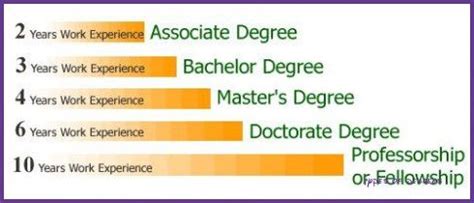Types Of Teaching Degrees: Faqs & Choices

Are you passionate about education and interested in pursuing a career in teaching? If so, you may be wondering about the different types of teaching degrees available and what they entail. This guide will provide answers to some frequently asked questions about teaching degrees and help you make informed choices about your education.
1. What are the different types of teaching degrees?
There are several types of teaching degrees that you can pursue, depending on your career goals and interests:
- Bachelor’s Degree in Education
- Master’s Degree in Education
- Doctorate in Education
- Alternative Certification Programs
2. What is a Bachelor’s Degree in Education?
A Bachelor’s Degree in Education is a four-year undergraduate program that provides a foundation in educational theory and practice. This degree prepares students for entry-level teaching positions in K-12 schools. Some common specializations within a Bachelor’s Degree in Education include Elementary Education, Secondary Education, Special Education, and Early Childhood Education.
3. What is a Master’s Degree in Education?
A Master’s Degree in Education is a graduate-level program that allows educators to deepen their knowledge and skills in a specific area of teaching. This degree is often required for career advancement and may also be necessary for certain teaching positions, such as becoming a school principal or curriculum specialist. Some popular specializations within a Master’s Degree in Education include Educational Leadership, Curriculum and Instruction, and Special Education.
4. What is a Doctorate in Education?
A Doctorate in Education, also known as an Ed.D. or Ph.D. in Education, is the highest level of education degree in the field of education. This degree is typically pursued by individuals who are interested in leadership roles in education, such as becoming a college or university professor, researcher, or administrator. A Doctorate in Education requires extensive research and the completion of a dissertation.
5. What are Alternative Certification Programs?
Alternative Certification Programs are designed for individuals who have a bachelor’s degree in a field other than education and want to become certified teachers. These programs offer an accelerated pathway into teaching by providing the necessary coursework and practical experience to meet state teaching requirements. Alternative Certification Programs are often available for high-demand subject areas, such as math, science, and special education.
6. What are the benefits of obtaining a teaching degree?
Obtaining a teaching degree can provide numerous benefits, including:
- Increased job opportunities: A teaching degree opens up a wide range of career opportunities in education, from teaching in public or private schools to working in educational administration or research.
- Higher earning potential: Teachers with a higher level of education, such as a master’s or doctoral degree, often earn higher salaries than those with just a bachelor’s degree.
- Professional growth and development: Pursuing a teaching degree allows educators to expand their knowledge, skills, and teaching strategies, which can lead to improved classroom performance and student outcomes.
- Job security: Teaching is a stable profession with a high demand for qualified educators. Obtaining a teaching degree can provide job security and increase employability.
7. How do I choose the right teaching degree program?
When choosing a teaching degree program, consider the following factors:
- Your career goals: Determine what type of teaching position you are interested in and choose a degree program that aligns with your career goals.
- Specializations: If you have a specific area of interest within education, look for degree programs that offer specializations in that area.
- Accreditation: Ensure that the degree program you choose is accredited by a recognized accrediting body to ensure the quality and validity of your degree.
- Flexibility: Consider your schedule and preferred learning format (in-person or online) when selecting a degree program.
8. Can I teach without a teaching degree?
In some cases, it is possible to teach without a traditional teaching degree. Alternative certification programs, as mentioned earlier, offer a pathway into teaching for individuals with a bachelor’s degree in a field other than education. Additionally, some private schools may hire teachers without formal teaching degrees, but they often require relevant experience or specialized skills.
9. What are the job prospects for teachers?
The job prospects for teachers vary depending on several factors, including the location, subject area, and level of education. According to the U.S. Bureau of Labor Statistics, the employment of kindergarten, elementary, middle, and high school teachers is projected to grow 4% from 2019 to 2029, which is about as fast as the average for all occupations.
10. How can I finance my teaching degree?
There are several options available to finance your teaching degree, including:
- Scholarships and grants: Explore scholarship and grant opportunities specifically for education majors.
- Student loans: Consider taking out student loans to cover the cost of your education. Be sure to research and compare interest rates and repayment options.
- Work-study programs: Look for work-study programs that allow you to work part-time while attending school to help offset the cost of your education.
- Employer assistance: Some school districts or educational organizations offer tuition reimbursement or assistance programs for teachers pursuing advanced degrees.
Conclusion
Choosing the right teaching degree is an important decision that can shape your career in education. By understanding the different types of teaching degrees available and considering your career goals, interests, and financial situation, you can make informed choices and pursue a rewarding career in teaching.
Frequently Asked Questions (FAQs)
- What are the different types of teaching degrees?
- What is a Bachelor’s Degree in Education?
- What is a Master’s Degree in Education?
- What is a Doctorate in Education?
- What are Alternative Certification Programs?
- What are the benefits of obtaining a teaching degree?
- How do I choose the right teaching degree program?
- Can I teach without a teaching degree?
- What are the job prospects for teachers?
- How can I finance my teaching degree?

